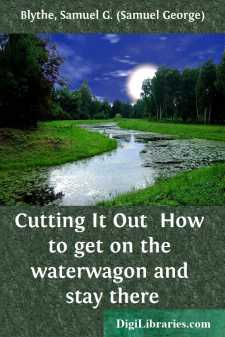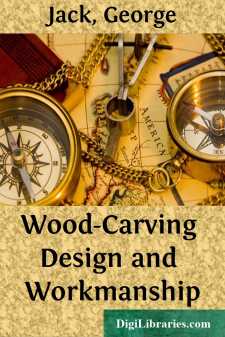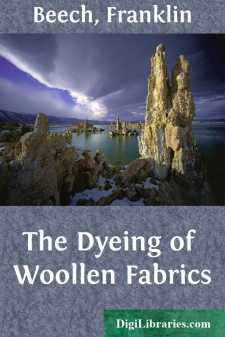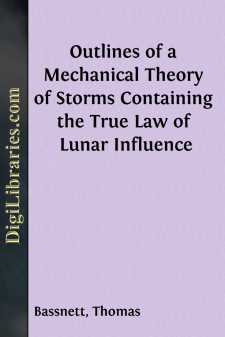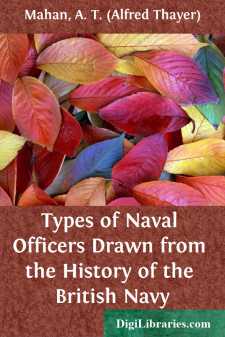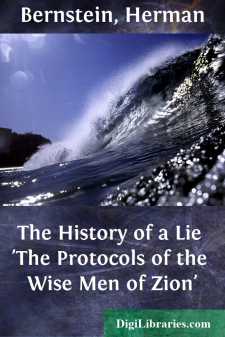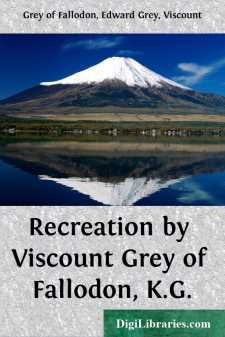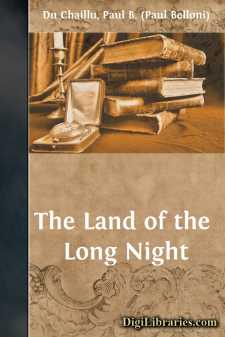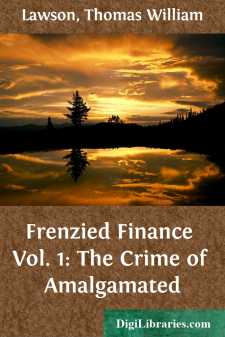Non-Classifiable
- Non-Classifiable 1768
Non-Classifiable Books
Sort by:
CHAPTER I WHY I QUIT First off, let me state the object of the meeting: This is to be a record of sundry experiences centering round a stern resolve to get on the waterwagon and a sterner attempt to stay there. It is an entirely personal narrative of a strictly personal set of circumstances. It is not a temperance lecture, or a temperance tract, or a chunk of advice, or a shuddering recital of the woes...
more...
by:
George Jack
EDITOR'S PREFACE In issuing these volumes of a series of Handbooks on the Artistic Crafts, it will be well to state what are our general aims. In the first place, we wish to provide trustworthy text-books of workshop practise, from the points of view of experts who have critically examined the methods current in the shops, and putting aside vain survivals, are prepared to say what is good...
more...
by:
Franklin Beech
CHAPTER I. THE WOOL FIBRE. Wool is one of the most important textile fibres used in the manufacture of woven fabrics of all kinds. It belongs to the group of animal fibres of which three kinds are met with in nature, and used in the manufacture of textile fibres; two of these are derived from quadruped animals, such as the sheep, goat, etc., while the third class comprises the products of certain...
more...
by:
Thomas Bassnett
SECTION FIRST. PRESENT STATE OF METEOROLOGY. The present state of the science of which we are about to treat, cannot be better defined than in the words of the celebrated Humboldt, who has devoted a long life to the investigation of this department of Physics. He says: “The processes of the absorption of light, the liberation of heat, and the variations in the elastic and electric tension, and in the...
more...
FOREWORD Once upon a time as four blind men sat by the roadside they heard the tramp of an elephant’s feet, and said one to another, “Here comes an elephant; now we shall know what he is like.” The first blind man put out his hand and touched the elephant’s broad side. The second took hold of a leg. The third grasped a tusk, and the fourth clutched the animal’s tail. “Now do you know what...
more...
INTRODUCTORY Naval Warfare at the Beginning of the Eighteenth Century The recent close of the nineteenth century has familiarized us with the thought that such an epoch tends naturally to provoke an estimate of the advance made in the various spheres of human activity during the period which it terminates. Such a reckoning, however, is not a mere matter of more and less, of comparison between the...
more...
by:
Herman Bernstein
FOREWORD This is the history of a Lie—of a cruel and terrible Lie invented for the purpose of defaming the entire Jewish people. Given out as fiction, by a German anti-Semitic writer, involved in the Waldeck forgery case, who concealed his identity under the pen-name of an Englishman, it was gradually changed and elaborated, and finally groomed as fact. Agents of the Russian secret police department...
more...
It is sometimes said that this is a pleasure-seeking age. Whether it be a pleasure-seeking age or not, I doubt whether it is a pleasure-finding age. We are supposed to have great advantages in many ways over our predecessors. There is, on the whole, less poverty and more wealth. There are supposed to be more opportunities for enjoyment: there are moving pictures, motor-cars, and many other things which...
more...
Introduction My Dear Young Folks: Friend Paul has led many of you into the great Equatorial Forest of Africa. We met there many strange and wild tribes of men, and lived among cannibals and dwarfs or pygmies. We hunted together, and killed many elephants, fierce gorillas, leopards, huge crocodiles, hippopotami, buffalos, antelopes, strange-looking monkeys, wonderful chimpanzees of different...
more...
TO MY AUDIENCE SAINTS, SINNERS, AND IN-BETWEENS Before you enter the confines of "Frenzied Finance," here spread out—for your inspection, at least; enlightenment, perhaps—halt one brief moment. If the men and things to be encountered within are real—did live or live now—you must deal with them one way. If these embodiments are but figments of my mind and pen, you must regard them from a...
more...


